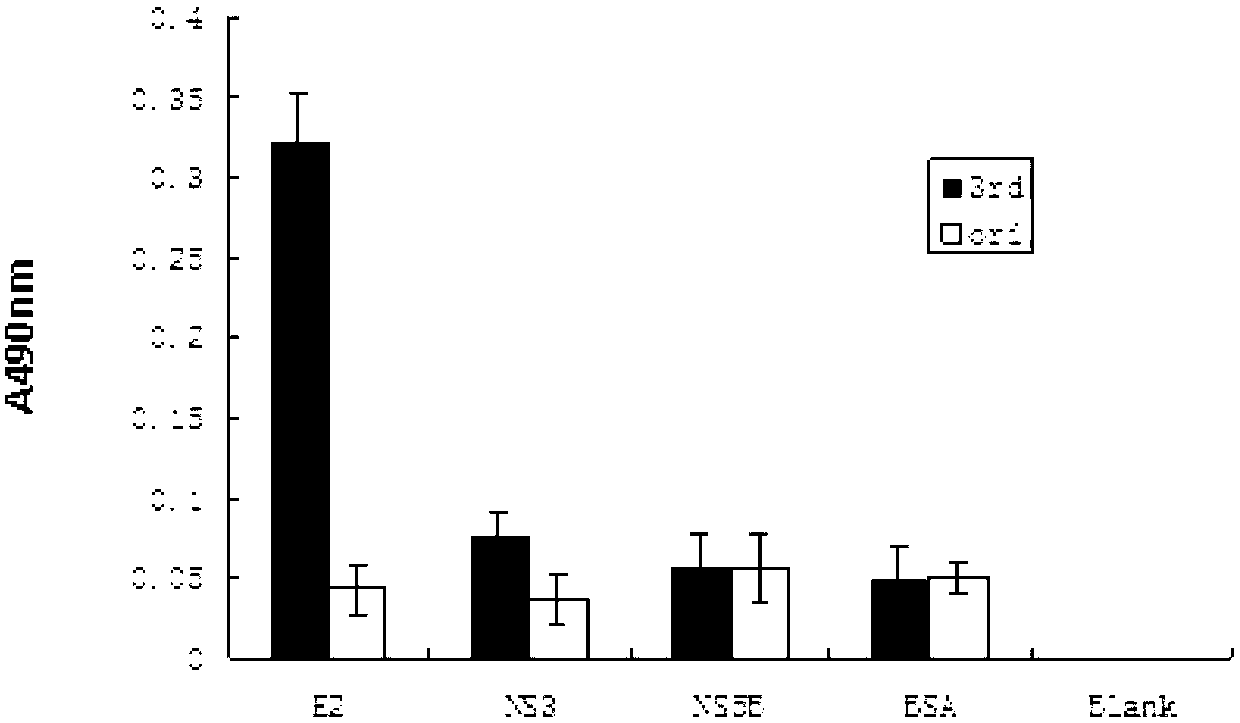Polypeptide for inhibiting hepatitis C viruses (HCVs) from infecting cells, and its application
A hepatitis C virus, cell technology, applied in the direction of antiviral agents, peptides, peptide/protein components, etc., can solve the problems of poor treatment effect, side effects, and no inhibitor.
- Summary
- Abstract
- Description
- Claims
- Application Information
AI Technical Summary
Problems solved by technology
Method used
Image
Examples
Embodiment Construction
[0020] The present invention will be further described in detail below in conjunction with specific embodiments, which are explanations of the present invention rather than limitations.
[0021] 1. Construction and expression of HCV E2 protein
[0022] 1.1 Construction of E2 recombinant plasmid by molecular cloning method
[0023] The gene of envelope glycoprotein E2 of HCV (belonging to genotype 1a) was amplified by PCR, and EcoRI and HindIII enzyme cutting sites were designed at the 5' end and 3' end of the upstream and downstream primers respectively, and the amplified clone product was The constructed restriction site was cloned into the pET28a vector (purchased from Novagen, Cat. No. 69864-3), and the recombinant vector obtained was named pET28a-E2661. The specific construction method was as follows:
[0024] Firstly, the HCV E2661 gene coding region fragment was amplified by PCR method, EcoRI and HindIII restriction sites were designed at both ends of the primers, and t...
PUM
 Login to View More
Login to View More Abstract
Description
Claims
Application Information
 Login to View More
Login to View More - R&D
- Intellectual Property
- Life Sciences
- Materials
- Tech Scout
- Unparalleled Data Quality
- Higher Quality Content
- 60% Fewer Hallucinations
Browse by: Latest US Patents, China's latest patents, Technical Efficacy Thesaurus, Application Domain, Technology Topic, Popular Technical Reports.
© 2025 PatSnap. All rights reserved.Legal|Privacy policy|Modern Slavery Act Transparency Statement|Sitemap|About US| Contact US: help@patsnap.com



